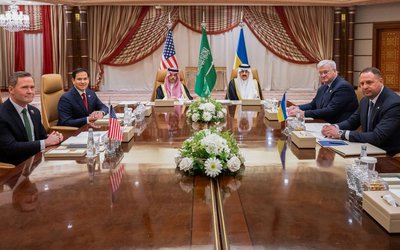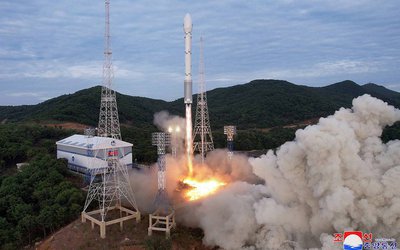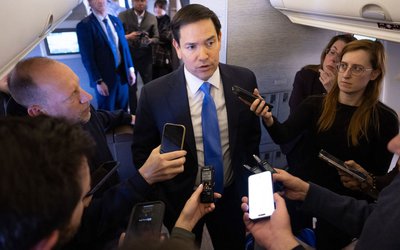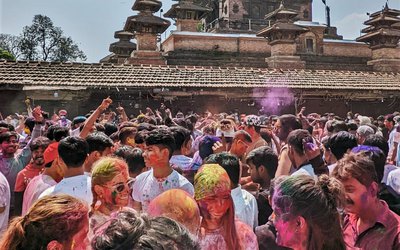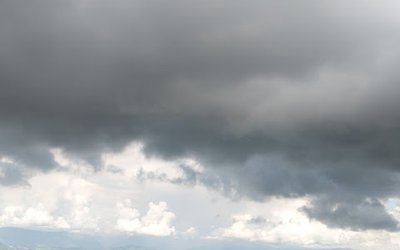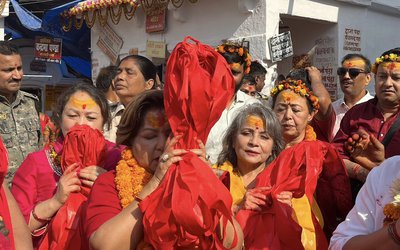
Prime Minister Sher Bahadur Deuba’s statement on the eve of his five-day state visit to India revealed the anxieties Nepal’s political order harbours about the country’s constitution. “The republic will be formalised once elections to the provincial and federal parliament are held,” Deuba had said. A day earlier, the cabinet had decided to hold the two elections simultaneously on November 26.
Why does the republican order appear so “vulnerable” though the monarchy was “abolished” at the first meeting of the Constituent Assembly nearly nine years ago? Incidentally, Deuba’s assessment is shared by many key political groups. Pushpa Kamal Dahal, chief of the Communist Party of Nepal-Maoist Centre, and also a partner in Deuba’s government, has repeatedly said the Nepali Congress and the Communist Party of Nepal-Unified Marxist Leninist together may restore Nepal’s Hindu status and the monarchy that the new constitution took away.
A similar fear is palpable also among certain sections in India that had played a key role in formulating the contentious agenda of the constitution, mainly secularism and republicanism, without following due process and letting the people have their say on these issues. “Hope Deuba’s unscheduled one-to-one meeting with (Prime Minister) Modi was not to brief the Nepali leader on the virtues of a monarchial Hindu state order,” tweeted S.D. Muni, who in his capacity as member of the National Security Advisory Board of India, influenced the Indian establishment to endorse the radical political agenda in Nepal that had Maoists at the centrestage.
Prime Minister Modi had invited Deuba to his residence soon after he landed in Delhi Wednesday. The unplanned and unprecedented act was clearly an Indian wish. It was perhaps a message to China, now not only competing with India but visibly outpacing it in Nepal, that Kathmandu and New Delhi do not always work under prescribed state norms and that “common culture and traditions”, at times, make them a “family”.
However, Nepal’s political society has drawn their own conclusions about Deuba’s visit, which seems very different from what Modi may want to signal to the world. There has been strident criticism in Nepal of the 46-point statement, that followed the signing of the eight-point MoU during the visit, and Deuba’s commitment to amend the constitution to address the grievances of the Rastriya Prajatantra Party, a Madhes-based political group. An amendment bill to the constitution to meet the demands of Madhes groups had been defeated in parliament on the eve of Deuba’s India visit. Critics are questioning Deuba’s decision to commit in Delhi that he will re-introduce the defeated bill. Deuba, of course, has the chance to clarify his position in parliament.
India’s foreign secretary, S. Jaishanker, said Doklam did not figure when the two prime ministers met. The statement issued by New Delhi, however, said that “defence ties and assistance in security is an important aspect of our partnership”.
Deuba also apparently failed to convince New Delhi that more than a dozen embankments India “unilaterally” built on its side of the border cause floods in the Madhes area every year and need immediate “review” and “correction”. All that Delhi said was there will be more “consultation and cooperation”.
But Modi got an invitation from Deuba for a third visit to Nepal to lay the foundation of a hydro project — Arun Three — that will be built with Indian aid. Modi badly needs to tell Nepali people that the post-earthquake blockade, which put them into hardship, was an aberration and unfortunate.
However, certain developments that took place during Deuba’ India visit indicate that he may have fresh challenges to deal with on his return. The ruling coalition partner, the CPN-Maoist Centre, has revived the Young Communist League (YCL) that has threatened to “keep a watch on corrupt leaders besides manpower agencies dealing with drafting youths to employment abroad”. The YCL had been lying low since the Nepali Congress and other coalition partners objected to them running a “parallel state” seven years ago. The YCL’s new statement indicates that its agenda and style of functioning has not changed. It also has the potential to cause a rift in the ruling coalition and threaten the government. A law and order problem can be detrimental to the timely conduct of the polls scheduled in November.
A prime minister visiting New Delhi soon after assuming office used to be seen as a routine matter. However, the increasing hostility or indifference of more and more political actors in Nepal towards India means a Delhi trip may not always yield a positive outcome for the government of the day. Back home, Deuba will need to dispel the suspicion about any “secret deal” having been made during his visit, and make the atmosphere conducive for a fair poll in November.
Courtesy: Indian Express
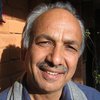
Yubaraj Ghimire
Ghimire is a Kathmandu based journalist.
- Manmohan Singh And The Churn In Nepal
- Jan 08, 2025
- Why ‘Revolutionary’ Communist PM Prachanda Went To Temples In India
- Jun 08, 2023
- Why China Is Happy With Nepal’s New PM
- Jan 03, 2023
- Prachanda Sworn In As PM: New Tie-ups In Nepal, Concern In India
- Dec 27, 2022
- Young TV Anchor As Its Face, RSP Rise Takes Nepal By Surprise
- Nov 23, 2022



